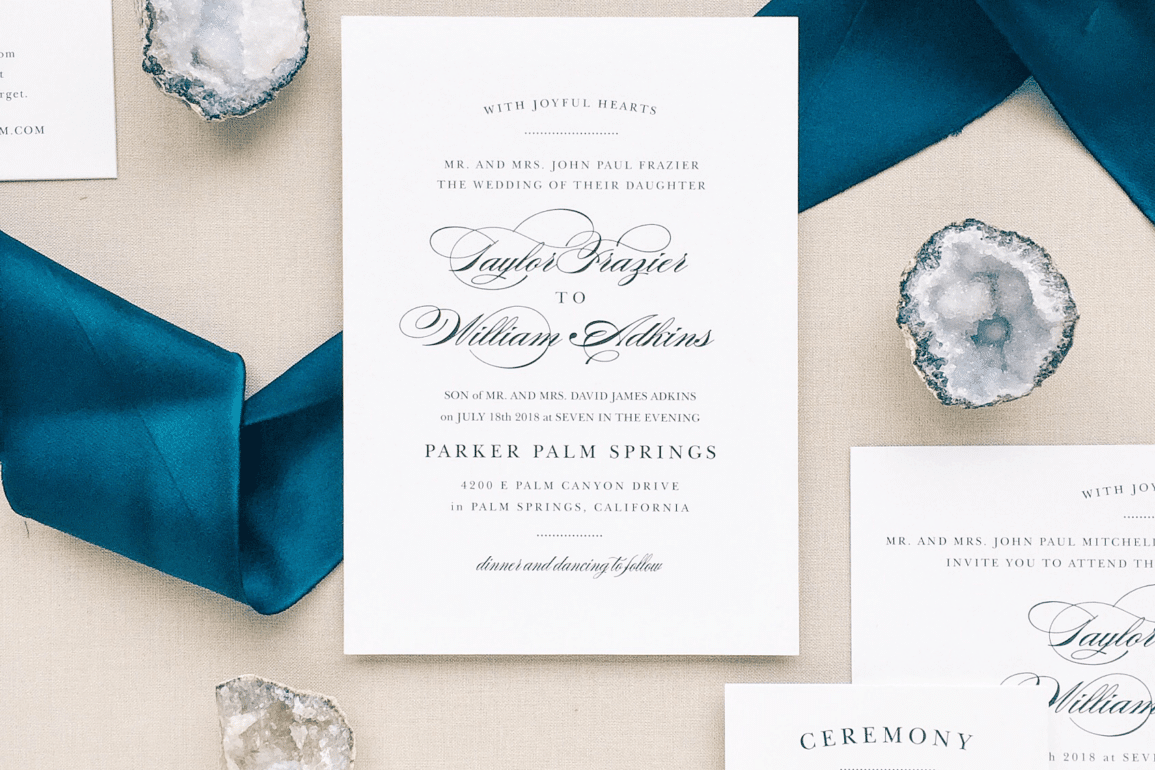Editor's Note: I would love to include more African-American voices and opinions in this article. If you're a wedding pro and would like to be included, please connect via Instagram DM (@LoveIncMag) or email and share your thoughts.
Also, if you're a wedding pro and need guidance on racial diversity, I highly, highly encourage you to look into the consultation services of Nova Reid, Monique Melton, and Where Change Started.
**This is an ongoing news article and we will continue to update as information is received.**
*12/06/2019 Update: Brides.com and Zola have also joined Pinterest and The Knot Worldwide in this pledge to stop promoting plantation-themed wedding content.
Earlier this week, it was announced that The Knot and Pinterest would stop promoting wedding content that romanticizes plantations.
Civil rights advocacy group Color of Change prompted this effort, writing in a letter to The Knot Worldwide executives that was later shared with Buzzfeed News: “The decision to glorify plantations as nostalgic sites of celebration is not an empowering one for the Black women and justice-minded people who use your site.” Pinterest execs received a similar letter.
“Weddings should be a symbol of love and unity. Plantations represent none of those things,” the Pinterest spokesperson wrote in an email to Buzzfeed News. “We are working to limit the distribution of this content and accounts across our platform, and continue to not accept advertisements for them.”
According to a statement from The Knot that was shared with me, “Our goal is to ensure that the content of all of our vendors on our sites is respectful and considerate to everyone. At The Knot Worldwide, we pride ourselves as a company by being inclusive to all — all sexes, genders, races, sexual orientations, religions, and more.
Color of Change brought an issue to light about the way venues with a history of slavery describe their properties to couples. We’re currently working with Color of Change to create additions to our current content guidelines that will ensure all couples feel welcomed and respected on our sites. These guidelines will prohibit any vendors on The Knot or WeddingWire from using language that romanticizes or glorifies a history that includes slavery. We will remove any vendors from our sites that do not comply. By creating these guidelines, we are providing a respectful experience for all couples, wedding professionals, and employees.”
And I 100% agree.
I've never published a plantation wedding for this very reason. The word plantation is synonymous with slavery. End of story. It's essentially our country's version of concentration camps. Would you ever consider getting married at Auschwitz? Terrible thought, right?
Now before I dive too deep, I want to note that I am a caucasian woman, so while I will obviously never have the experiences of an African-American in our country, I do believe in the importance of inclusivity, and I think it’s important to recognize the white privilege those of us who are white have, a privilege that is a direct result of our country's horrific past. And plantation weddings are just one example within the wedding space.
In the conversations that I've read about this, an ongoing argument is that it was 100+ years ago, and the current venue owners have nothing to do with what happened at the property back then. However, if you're white, you've almost certainly benefited from that white privilege, which means this does involve you, whether you like to admit it or not.
Obviously, many couples are attracted to the venues' aesthetics, and the history isn't even on their radar. Which is also a problem. It speaks to the white-washing our society has done to cover up the past, while racism is still prevalent in everyday life. A plantation's history should never be glorified — in fact, it's downright disgusting.
I reached out to several top wedding pros, who are black, to get their insights as black women and industry professionals.
From Tanessa Burch of Love and Luxury Events: “I'm a black woman and I am happy this is being considered. While I know that not all whites were partners in slavery, the concept of plantations still being used is hurtful to my culture. I get the scenery is beautiful, and that the layouts are large and inclusive BUT the stories and history upon those lands is still a negative thing for us. My ancestors were beaten, raped, disrespected, discarded, enslaved and hung upon those lands. I can't unsee it. I can't unfeel that.”
From Keneshia Raymond of Blissful Creatives: “When I first entered the wedding space and started to hear of plantation weddings I thought it was a joke, people really want to get married on a plantation? Space where African American people were beaten, enslaved, raped, murdered and so much more … really you see that as a space to have a wedding? My thoughts behind having a plantation wedding as a black woman are, it is a sad time where you can think it is okay to go stand on grounds and get married where so many were mistreated and killed and possibly buried where you are standing. Yes I do understand plantations exist and I can even say they need to be highlighted as a place in history, they need to tell a true and accurate story of what they were and what they stood for and who they are now. But a wedding venue, NO!! I believe that some venues are celebrating what happened and getting married there you too are celebrating and not showing empathy for those that are affected. Not everyone will agree but I believe that we can all agree that as an ancestor of a slave I am not ok with the untrue narrative that is being depicted to sell a space at a ‘plantation/venue.'”
I just simply wouldn't recommend getting married on a plantation. The grounds are literally graveyards, and no amount of peonies can cover that up. But if you're a venue manager for a plantation property, what are you supposed to do?
In regards to The Knot/WeddingWire/Pinterest, we must wait until they release the official guidelines to know exactly what is and isn't allowed but we do know that it's about the marketing language. If the word “plantation” is in the venue's name, that is okay per their policy. It's the act of using that term to romanticize the property that is disrespectful and goes against their inclusion policy. So if the name of your venue is Maplewood Plantation, but you refrain from describing it as “an elegant and historic plantation,” then you should be okay.
As for my advice as an inclusivity expert in the wedding space, one option, and in my personal opinion, the best option, is to pivot the business and turn it into a memorial and museum. That being said, I do recognize from a business owner's perspective that this may not be a feasible option and could put hundreds of people out of work. So if you choose to continue running the plantation as a wedding venue, it's important to take ownership of the past, and there are steps that you most certainly need to take in order to do so:
1. Do not romanticize the history. Require couples to take tours of the property, historically accurate tours that do showcase the horror that happened on the grounds — the beatings, the murders, the family separation, the hangings — so that they can make an educated decision. Do not white-wash it. Particularly with the young Millennials and Gen Z generations, inclusivity is important to them.
2. Rebrand but don’t try to cover it up. It’s important to take responsibility for the past. I know this isn't a popular opinion, but we’ve got to start somewhere. As someone who was born and raised in the South, I can tell you that that particular part of American history was certainly glossed over in schools. I would start with changing the name, and then having a section on your website and any printed marketing materials dedicated to the real history of the location. I know that there are some state laws that don’t allow you to change the name of historical sites, which leads me to my next point.
3. Be an advocate for change. And donate. It’s important to support organizations, like Color of Change. If you see racism happening, say something. Vote for politicians who recognize racial issues and have plans to do something about it.
If you're a venue owner and you need guidance on how to be more inclusive, please don't hesitate to DM me @loveincmag or send me an email for quick questions, but I also highly, highly encourage you to look into the racial diversity consultation services of Nova Reid, Monique Melton, and Where Change Started.
And big thank you to Kinsey Roberts for having me on her podcast, She Creates Business to discuss this conversation further. Click to listen to the episode.












